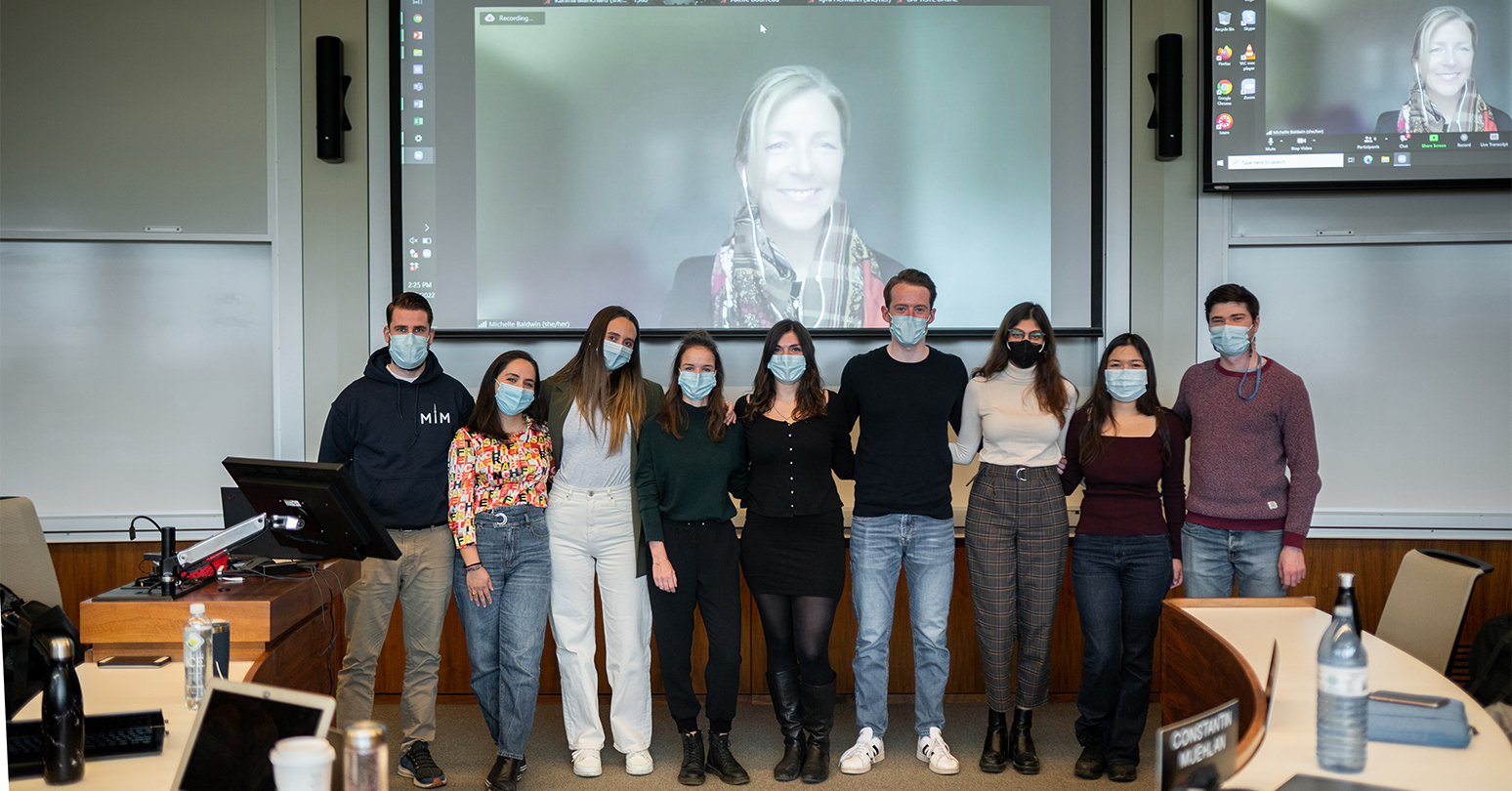Alongside activists, artists, and prominent changemakers, the work of some students in Ivey’s MSc Global Citizenship Seminar will be showcased this summer at a prestigious conference on global challenges.
A project on Web 3.0 – also known as the next generation of the internet – by a team of CEMS Master in International Management (MIM) students, will be displayed at the Estoril Conferences, running September 1-2 in Portugal. Ivey Professor Tima Bansal, Founder of the Network for Business Sustainability, will also present at the conference on business sustainability.
The students’ opportunity is a result of a partnership between the Estoril Conferences and CEMS, a global alliance of leading business schools, multinational companies, and NGOs that offer the CEMS MIM program. All institutions offering the program were asked to work the key topics to be discussed at the Estoril Conferences into their curriculum and submit a project on a topic for inclusion in the conference. As a CEMS school, Ivey worked this component into the Global Citizenship Seminar in a unique way. The class of visiting exchange students heard from five guests from various sectors who shared real-world challenges that they hope to make progress on. The challenges aligned with three of the seven key topics at the Estoril Conferences: Inclusion and Access, Health and Cooperation, and Education and Skills.
Embedding equity into Web 3.0
Working in teams, the students delved into the issues and shared their ideas for how to make progress, and a winner was chosen to have its work displayed at the conference. There is a possibility other projects will be featured as well. The winning team’s project focused on how Web 3.0, which is based on blockchain technology and decentralization, and other new technologies might disrupt existing institutions. They also explored how to embed equity into these systems by encouraging a participatory citizenship model. The students involved are Ludovica Arconte, Dylan Degiorgi, Cecilia Di Genova, Martijn Hermsen, Rachele Landi, Madina Mustakhim, Pierre-Emmanuel Otte, Jhanvi Shah, and Celine Voiseux.
“We put a lot of effort into this and we are really happy to have this recognition of our work,” said Ludovica Arconte, a CEMS student visiting Ivey from Bocconi University in Italy. “This is the best reward for us because we wanted to do something powerful and thoughtful and we are proud that our work is considered useful.”
The team’s work was also rewarding for Michelle Baldwin, Senior Advisor of Transformation at Community Foundations of Canada, who put out the Web 3.0 challenge to the students. She is involved with a decentralized autonomous organization (DAO), a collective entity owned and operated by its community members, which is part of the advent of Web 3.0. The DAO that she is contributing to, SuperBenefit, focuses on embedding better values into society’s deepest systems. Through the Ivey project, Baldwin said the students distilled the thought leadership related to Web 3.0 and considered how to bring a social and environmental impact lens into the space.
“Technology can be such an inaccessible form of change so I was curious to see how the students would land on how we hold Web 3.0 and citizens accountable for equity in this new movement,” she said. “I was so deeply impressed with where they landed and found their work just furthered my thinking about the opportunities with Web 3.0 and I’m excited to continue to explore them.”
Baldwin said the global context of the class was also helpful since the students looked at how new technologies are developing in their home countries.
“It was almost like having a focus group with a context of intergenerational and global justice to move this work forward,” she said. “The students helped me to see what resonates because the language we use is really important. How will we get people into the space if we can’t talk about it in a way that’s easy to understand?”
Rachele Landi, who is visiting Ivey from Copenhagen Business School in Denmark, said working on the project was a great learning experience, especially given the timeliness of the topic.
“Web 3.0 is a topic that impacts us all and it was great to learn about both the positives and negatives of it,” she said.
Students rise to the challenge of bettering the world
Kanina Blanchard, an assistant professor of Management Communications and General Management who taught the seminar, said all of the topics fit well with the course’s theme since they focused on the responsibility global citizens have in creating a better future.
“Being a global citizen means you commit time and energy to contributing back and trying to make a difference on global issues and challenges,” she said. “It’s about the students redefining themselves with this idea of being a purpose generation and thinking about what they can do to make the world better.”
In addition to Web 3.0, the other challenges and guests included:
- What is the status of equity as it relates to health care and what are countries doing well or not so well? (Sandy Jansen, VP of Patient Care and Risk Management at St. Joseph’s Health Care in London, Ont.);
- How can women athletes be their authentic selves in the world of sport where men and women are judged differently? (Robin Bone, a professional Canadian pole vaulter);
- What challenges might arise when building a gender equity program in your community? (Swapnaa Jayaraman, Senior Program Manager at Microsoft and founder of the charity, Pudiyador); and,
- How can we redefine labour in a way that centres on dignity, inclusion, and access? (Nadine de Gannes, HBA ’09, Assistant Professor in Managerial Accounting and Control, and Sustainability.



